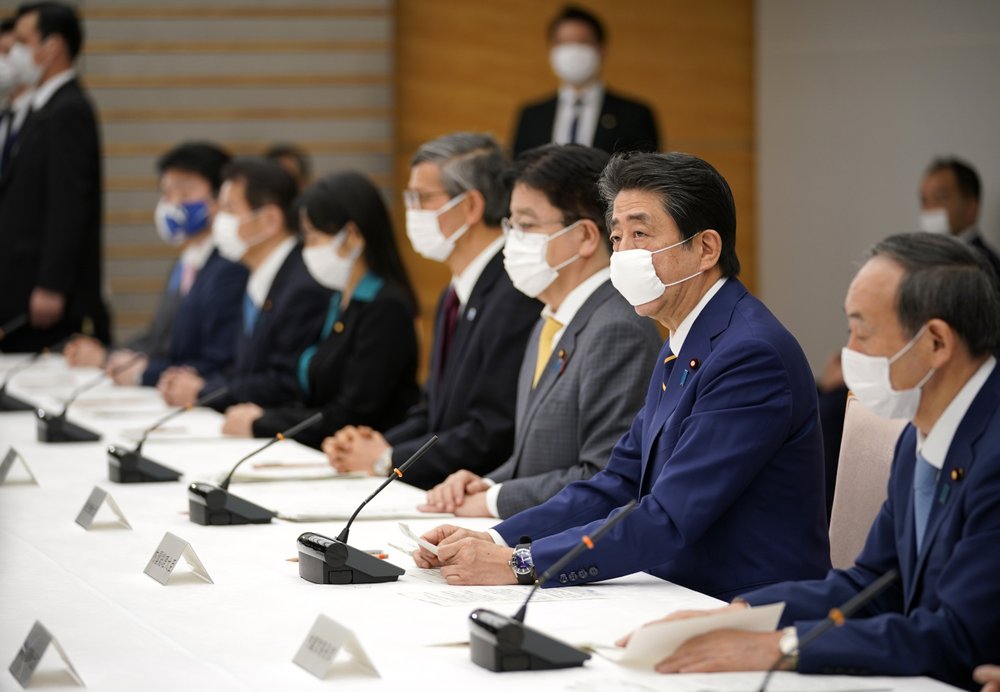Governor Roy Cooper declared a state of emergency for North Carolina amid coronavirus concerns Tuesday.
On Monday, five new cases of the novel coronavirus known as COVID-19 were identified in Wake County and all were linked to a Boston conference. During a live press conference on Tuesday, Governor Cooper confirmed North Carolina’s current known total is seven presumptive positive cases. But he said it’s likely more are soon to be reported, goal is to limit the number of people who become seriously ill.
“The main purpose of declaring a state of emergency,” said Cooper, “is increased flexibility to respond and prevent, as well as to allocate funds where needed. The state of emergency can help speed supplies and gives health and emergency managers more budget flexibility. It protects consumers from price gauging. It encourages insurers to make testing available for little or no cost. And it expands the ability to use more health professionals who are working to respond to this virus.”
Cooper said while many of the cases stem from one incident and are older adults, he reminded residents of the coronavirus’ ability to spread via respiratory droplets and of its longer incubation period.
“Anyone can carry the virus to loved ones or friends who can become ill,” he said. “Protecting public health means being cautious and being prepared. Today we are both.”
The North Carolina Department of Health and Human Services’ Twitter account was also provided updates during the briefing.
The department also gave statewide recommendations targeted towards at-risk patients in wake of more identified cases and the subsequent state of emergency.
NCDHHS Secretary Mandy Cohen said organizers of mass gathering events in the Triangle that primarily draw high-risk persons, including those that attract older adults, should consider cancelling or postponing their events. Adults of 65 years-old and those with underlying health conditions like lung disease, diabetes, weakened immune systems and others are strongly encouraged to avoid large crowds of people and to monitor any symptoms. Cohen said this includes avoiding gatherings such as concert venues, conventions, church services, sporting events, and crowded social events.
Cooper acknowledged the state’s recommendations could lead to inconvenience, disappointment and even financial loss to some residents. But he said they are based on the best medical advice and will ultimately save lives.
“We do want people to take this seriously, but we also want them to go on living their lives, ” the governor said, “particularly those who are not in the higher-risk group. We just need them to do it wisely.”
At this time, the NCDHHS does not list children in the high-risk persons category. Cohen said since they appear to be at a lower risk of serious infection from the coronavirus, the state is not currently recommending the preemptive closure of schools.
Related Stories
‹

North Carolina Crosses 100 Reported COVID-19 DeathsNorth Carolina has surpassed 100 deaths in the state from COVID-19 causes and symptoms. When state health officials released their updated number of reported coronavirus-related cases and deaths Tuesday morning, the death count rose to 108, up from 86 deaths the previous day. It is at least the 23rd state in the U.S. to cross […]

Japan Declares State of Emergency, Ramping up Virus BattleJapanese Prime Minister Shinzo Abe declared a monthlong state of emergency for Tokyo and six other prefectures on Tuesday to ramp up defenses against the spread of the coronavirus as the number of infections surges. But the move came in the form of a stay-at-home request — not an order — and violators will not […]
![]()
N.C. Legislative Cafeteria Worker Tests Positive for COVID-19The COVID-19 outbreak has reached into North Carolina’s Legislative Building, where a cafeteria employee tested positive for the virus, the building’s manager said. The unidentified worker was sent home March 26 after showing symptoms and received the positive test result Wednesday, Legislative Services Officer Paul Coble wrote to legislative staff. The cafeteria closed Wednesday indefinitely […]

North Carolina Crosses 1,000 Positive COVID-19 CasesNorth Carolina has more than 1,000 positive COVID-19 cases reported, according to the state’s Department of Health and Human Services. The department updated its totals on Sunday morning, reporting 1,040 positive cases of the novel coronavirus across the state. Approximately 18,945 tests have been completed and four North Carolinians have died as a result of […]
![]()
North Carolina Reports First COVID-19 Deaths in StateThe North Carolina Department of Health and Human Services reported the first COVID-19 associated deaths in the state on Wednesday morning. According to a release from Governor Roy Cooper’s press office, the department reports a North Carolinian from Cabarrus County died on Tuesday from complications associated with the virus. The patient is described as having been […]

Chatham County Declares State of Emergency Following 2 New COVID-19 CasesChatham County health officials received two new positive tests for the novel coronavirus called COVID-19 on Tuesday, bringing the county’s total to three cases. Shortly after, the county declared a state of emergency. A release from the county said the Chatham County Public Health Department was notified of the positive tests by the North Carolina […]
![]()
Trump Declares Virus Pandemic a National EmergencyPresident Donald Trump announced Friday that he is declaring the coronavirus pandemic a national emergency, as Washington struggles with providing Americans with relief and officials race to slow the spread of the outbreak. Speaking from the Rose Garden, Trump said, “I am officially declaring a national emergency.” He said it would free up as much […]

Durham County Resident Tests Positive for COVID-19Durham County health officials said a resident tested positive for the novel coronavirus on Wednesday while outside of North Carolina. A message from the county’s health department said the resident was not in North Carolina state when they began feeling symptoms and were tested. The individual will remain out-of-state while recovering. A Durham County resident […]

Indiana Coronavirus Case Visited the Triangle, Five More Cases Identified in Wake CountyGovernor Roy Cooper declared a state of emergency for North Carolina on Tuesday due to the ongoing spread of coronavirus.**** Health officials said Monday an Indiana resident who recently tested positive for the novel coronavirus traveled through North Carolina’s Durham and Wake counties last week. A release from the North Carolina Department of Health […]

Second Coronavirus Case in NC Identified in Chatham CountyA second North Carolina resident has tested positive for the novel coronavirus known as COVID-19, according to state health officials. In a release from the North Carolina Department of Health and Human Services, the second case is a Chatham County man who recently traveled to Italy and experienced flu-like symptoms. The department said this case […]
›





